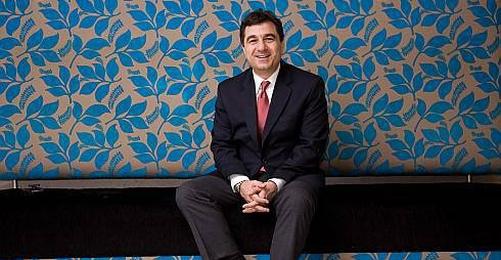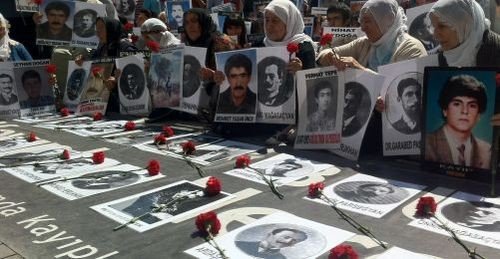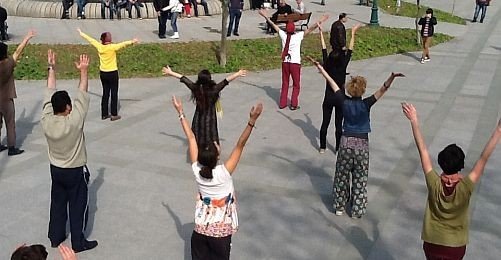Although the borders between Turkey and Armenia are closed, the trade volume between the two countries exceeds $ 200 million. Behind this success stands the Turkish-Armenian Business Development Council (TABDC), which does not only deal with the business side but also with cultural and humanitarian delegacies. We talked to TABDC co-chair Kaan Soymak about the council's activities and how trade brings the two countries closer together. Since Soyak was on a business trip in Armenia, he answered our questions by email.
What was the idea behind establishing the Turkish-Armenian Business Development Council?
In 1996 we had the idea of aiming direct trade between Turkey and Armenia, instead of trading via a third country as it was still the common way back then. Like that, we targeted to bring business people together. Still, business would be done via a third country but this time the middle country would not profit from the business but would only be used for the documentations. In 1997 the countries' presidents Demirel and Petrosyan met within the framework of the Black Sea Economic Cooperation and decided to establish this Business Council. I became co-chair on the Turkish side and Arsen Ghazarian is my colleague on the Armenian side respectively.
How many members belong to TABDC, from which countries and sectors do they come?
Our members prefer not to publish their names and companies, because in this case Azerbaijan would put them on their black list right away. But I can say that we have a large number of supporters from business councils and business people in Istanbul and Anatolia. Our members come from almost all business sectors.
"Also Diaspora started trading"
What is the TABDC's contribution to business opportunities between Turkey and Armenia?
We provide a significant contribution. When we initially established the council the trade volume via the third countries added up to $ 50 million, whereas nowadays the trade volume amounts to more than $ 200 million. Furthermore, sellers and buyers got to know each other. The most important achievement is the Armenian Diaspora participating in the trade between the two countries. A part of the Diaspora Armenians also support the opening of the borders now. That way they would be able to do business themselves. While many Turkish people formerly did not even venture to enter Armenia, nowadays you see Turkish business people in Yerevan doing business on different scales. It had a crucial effect on business relations that the TABDC broke this taboo. Apart from that we receive dozens of messages every day from business people from either countries. We provide them with information related to their sector and introduce them to "prospective" business partners. We are the first and still only institution to provide that kind of service.
What are the other activities of TABDC? What is the situation in the Armenian branch?
We are actually in charge of anything that comes to mind within the context of Turkish-Armenian relations because there is no other real authority that could deal with those issues between the two countries. We have to be much more than an ordinary business group. We also support projects such as concerts, theatres, films, or books. We guide the Turkish and Armenian media. We introduce business people belonging to the same sectors to each other. We work as one team together with our Armenian branch. We are not doing anything different, we bring everything into fruition together.
What is the current trade volume between Turkey and Armenia? How is this going to change if the borders are opened?
Even though the borders are closed, the annual trade value reached $ 200 million. Once the borders are open this figure can triple within a short time. In particular, trade in the railway sector will start. Shipments from the Mediterranean to the Middle East will entirely be done via Turkey. Turkey is excluded from the transport business right now since the borders are closed. The goods were sent via Georgia. Now, Turkey will have this trump card in hand. This means an additional $ 200 million revenue for Turkey.
What are the current challenges for business development between Turkey and Armenia?
We already know that there is a business potential. However, for an improvement we must begin with positive diplomatic relations and the border must be opened. Visa and tax procedures should be reviewed. These are the fields we have to work on.
What would an opening of the Turkish-Armenian border would mean to the TABDC? Does the council support this? Which initiatives have been launched by the TABDC for an opening of the border so far?
It has always been the TABDC's wish and request to open the borders ever since we have been founded. Of course we absolutely support this process. The TABDC played an important role when this question was initially introduced to the public. We are affiliated with diplomats on either sides, we have very good relationships with the foreign affairs...
Direction of trade approach
What are the responses to the TABDC's activities in Turkey, Armenia and Azerbaijan?
The activities of TABDC are supported on either side. It is currently problematic to turn the Council into an institution but we believe this will be solved. We are very well aware of the fact that peace cannot settle in this region without Azerbaijan and we keep emphasizing this.
What is the opinion of the Armenian branch on the opening of the borders?
As the TABDC we have the same ideas in general. We do not pursue different opinions as Turkey or Armenia. If it was like that we could not have come together in the first place. They support the opening of the border just like us.
Where do you see the role of trade in solving the problems between the two countries? In your opinion, is an approach via trade possible despite historical and political problems?
Trade is a very popular and successful field on either side. Trade brought the two people, who used to live on the same soil, closer together and made them meet again. We will solve historical and political problems by converging towards each other. When people come side by side and get to know each other and even more important, when they can do business together, they manage very well to leave historical and political obstinacy aside. (BM/EÜ/VK)












